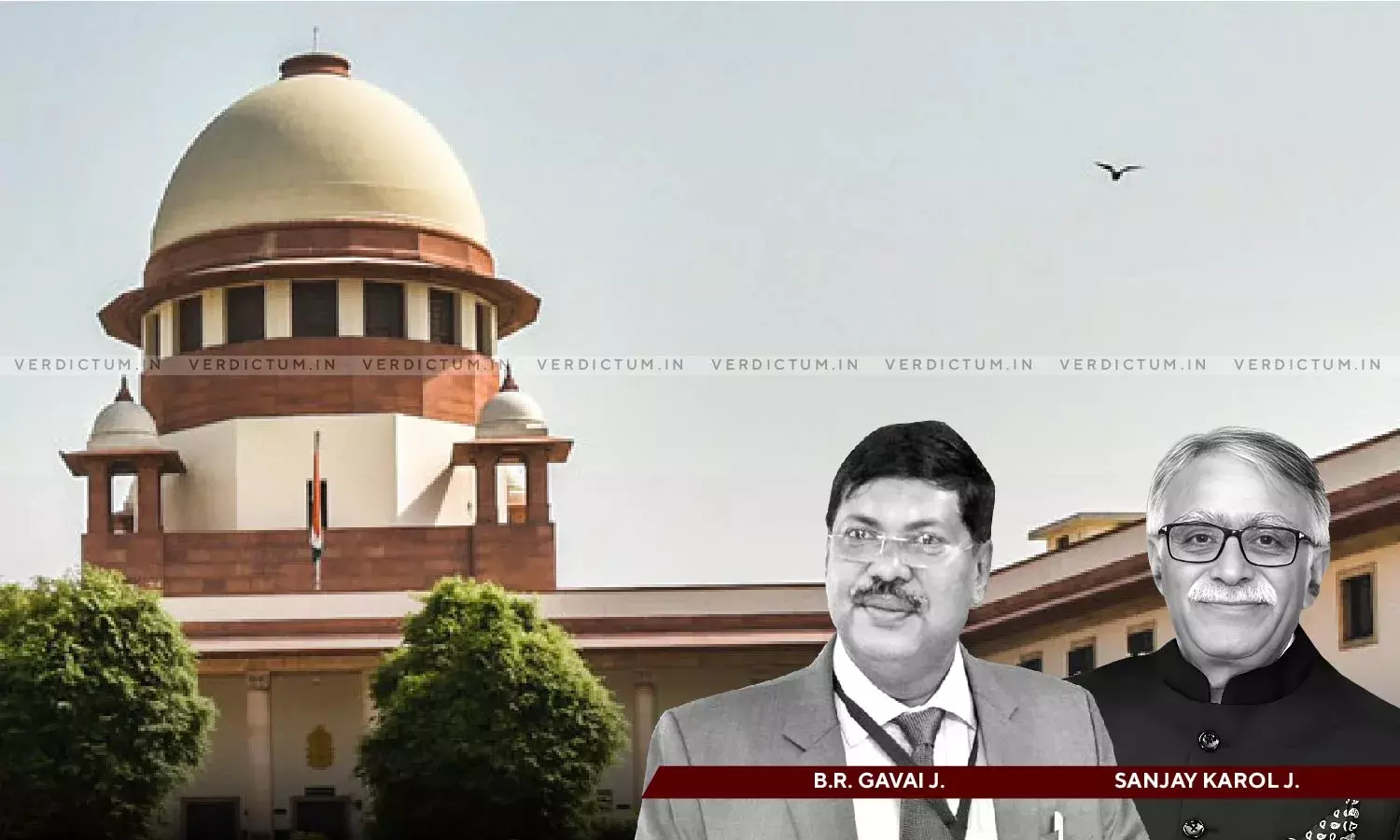Medicines Recovered Were Of Small Quantity: SC Affirms 1 Lakh Fine But Sets Aside Imprisonment Imposed On A Doctor Convicted Under Drugs & Cosmetics Act

The Supreme Court affirmed a fine of Rupees One Lakh but set aside an imprisonment order imposed on a doctor in a case related to the Drugs and Cosmetics Act, 1940 (Act).
The Bench comprising Justice B.R. Gavai and Justice Sanjay Karol observed, “imposing a sentence of imprisonment would be unjustified, particularly when the intent to sell/distribute under Section 18(c) of the Act has been held unproven”.
Senior Advocate S. Nagamuthu appeared for the Appellant and Senior Advocate Joseph Aristotle appeared for the State.
This appeal concerned an order from the High Court which upheld the decision of the Additional District & Sessions Judge. The lower Appellate Court modified the Chief Judicial Magistrate's order, by setting aside the appellant's conviction under certain sections of the Drugs and Cosmetics Act, 1940 (Act), while confirming the conviction under other sections.
The case originated from an inspection of a clinic on October 13, 2015, where officials found allopathic medicines meant for distribution without proper documentation. The prosecution initiated proceedings, and the Trial Court convicted the appellant based on the evidence presented. However, the lower Appellate Court overturned the conviction for one offence due to a lack of proof regarding the drugs' intended sale or distribution. The appellant filed a criminal revision and the same was dismissed for lack of perversity or infirmity in the lower court's orders.
The Court noted that the appellant was convicted under Section 18A read with Section 28 of the Drugs and Cosmetics Act, which pertains to the disclosure or non-disclosure of the manufacturer's name. The punishment prescribed for this offence is six months of simple imprisonment along with a minimum fine.
The Bench noted that a doctor was acquitted of stocking a small amount of drugs in the case of S. Athilakshmi v. State Rep. by The Drug Inspector due to the insignificant quantity not constituting selling medicines over the counter. The Bench noted that the only remaining aspect was the non-disclosure of the manufacturer's name. Given that the quantity of medicines found was small, the non-disclosure does not pose a threat to the public interest.
Furthermore, the Bench noted that considering the appellant's profession imposing a prison sentence would be unjustified, especially since the intent to sell or distribute was not proven.
Accordingly, the Court modified the judgment, set aside the imprisonment sentence and allowed the Appeal.
Cause Title: Palani v The Tamil Nadu State (2024 INSC 110)
Appearance:
Appellant(s): Senior Advocate S. Nagamuthu and Advocate M. P. Parthiban
Respondent(s): Senior Advocate Joseph Aristotle and Advocates D. Kumanan, Deepa. S and Veshal Tyagi

